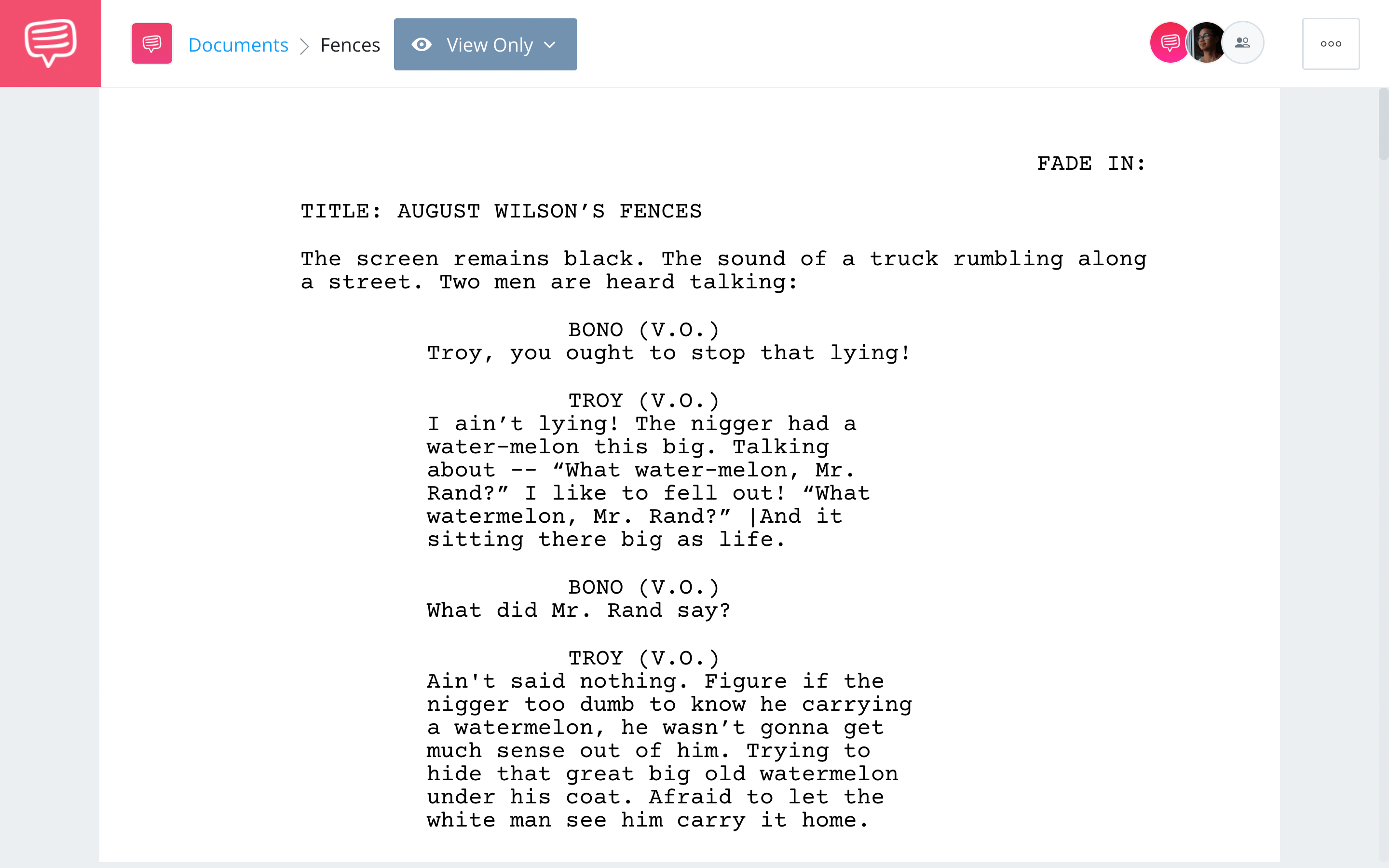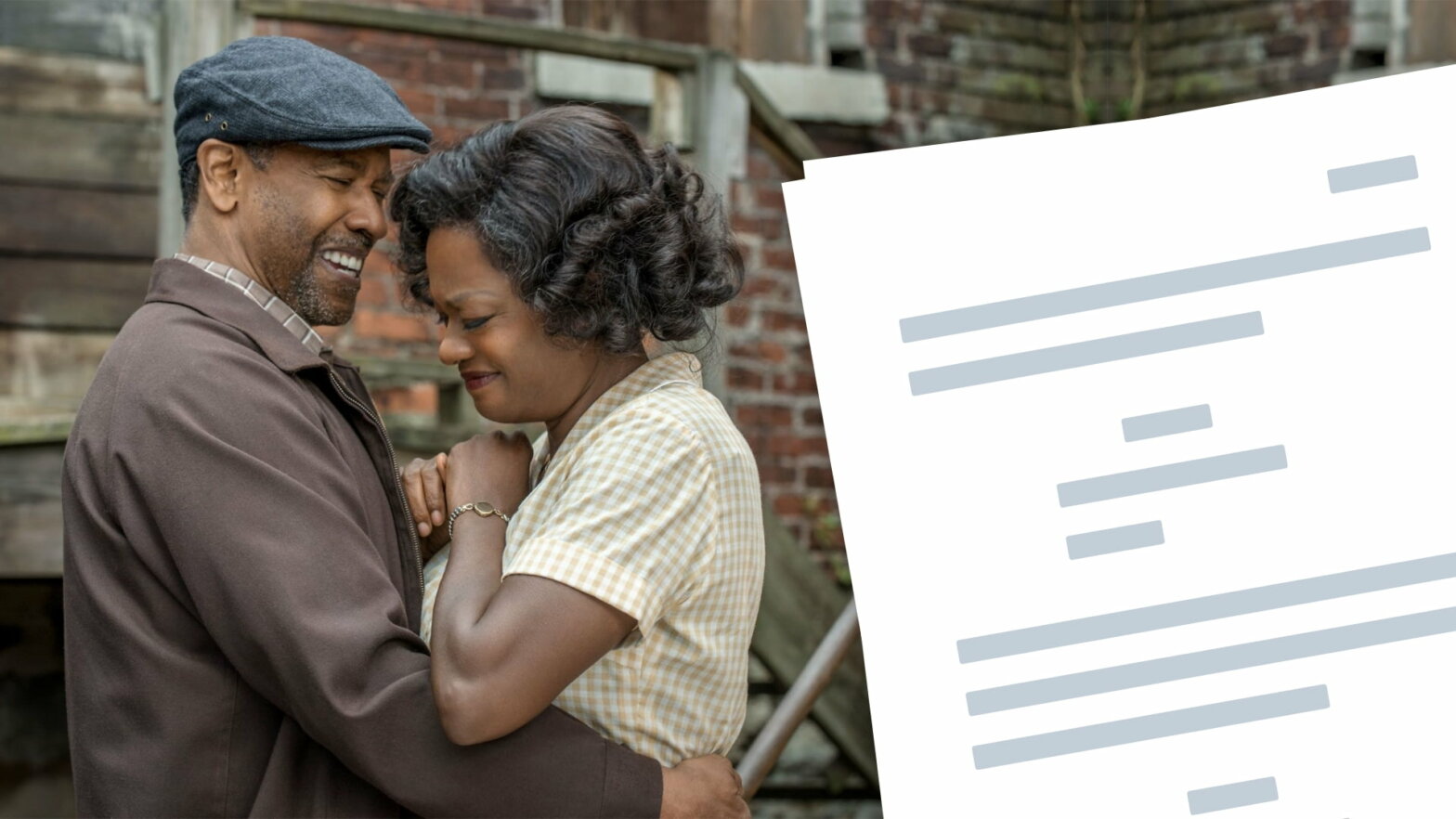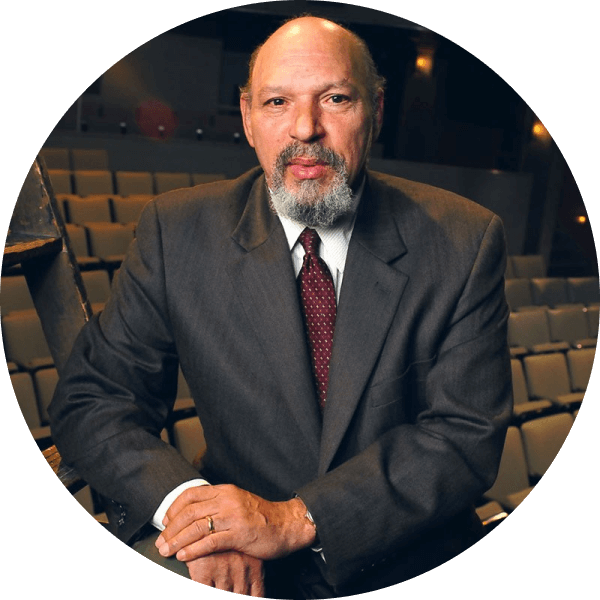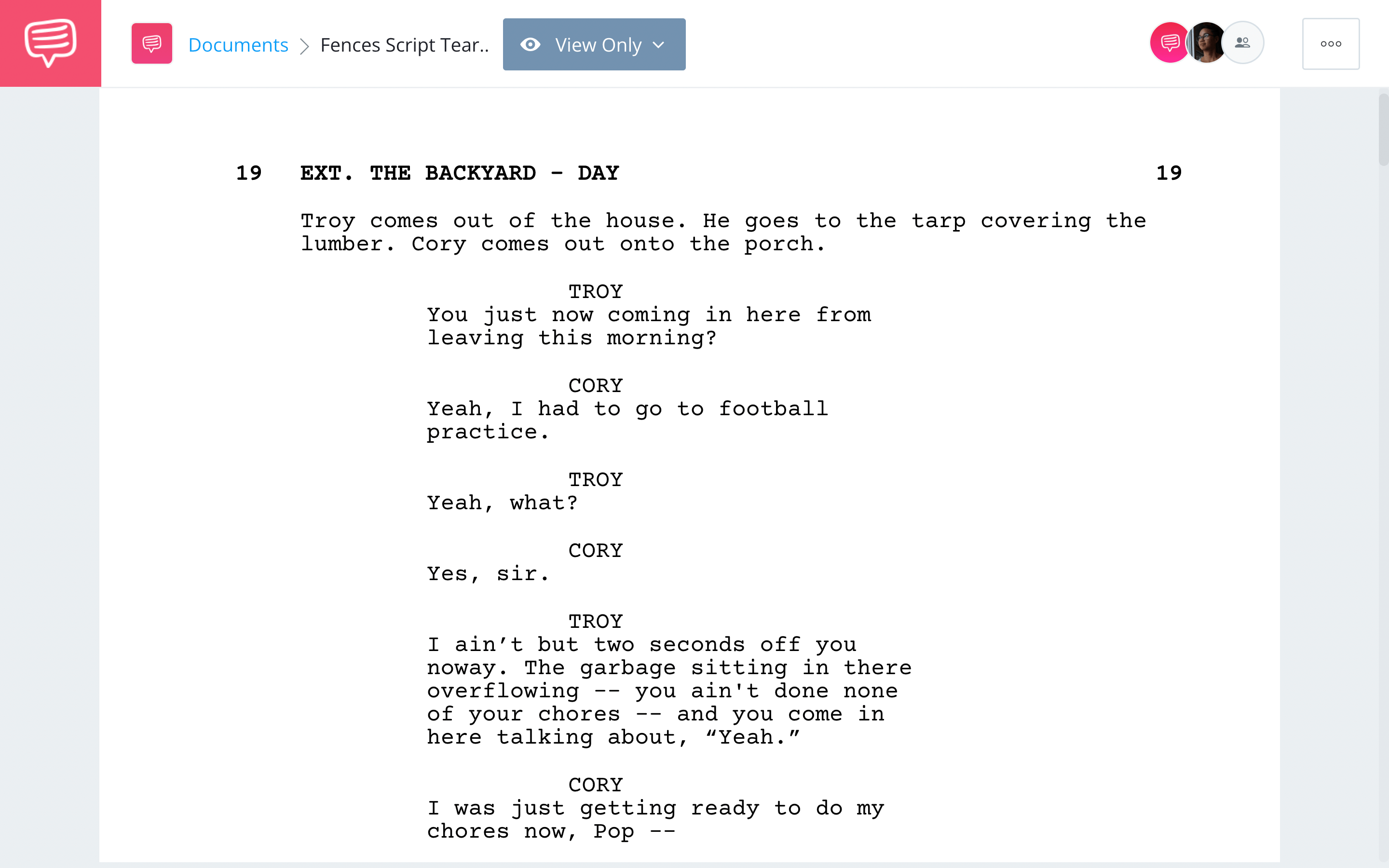

A ugust Wilson was one of the most revered scriptwriters of the 20th century. His magnum opus Fences is widely considered one of the greatest stage plays of all time. In 2016, more than ten years after Wilson’s death, Fences was produced as a feature film, with Denzel Washington and Viola Davis starring in the leading roles. We’re going to break down the Fences script by looking at its characters, quotes, themes, and allegories. By the end, we’ll have a good grasp as to why Fences is considered such an important work.
Subscribe for more filmmaking videos like this.
Click to view and download the entire Fences script PDF below.


August Wilson was an award-winning American playwright who wrote more than a dozen original plays. His major work is referred to as The Pittsburgh Cycle — a series of ten plays that each take place during a different decade. The Pittsburgh Cycle addresses the unique experiences of African-Americans at different periods in the nation’s history.
Here is the story structure for the Fences screenplay:
Troy is a 53-year-old garbage collector who is weary of the world. After an upsetting day of work, Troy and his kindred co-worker Bono reflect on current affairs over a bottle of gin.
Troy’s eldest son Lyons visits and asks for money. Troy scolds Lyons for visiting only when he needs money — meanwhile Troy’s current wife Rose offers sympathy to him. Troy reluctantly gives Lyons money but laments on how he’ll never get it back.
The next morning, Troy’s brother Gabriel visits. Gabriel suffered a severe injury in World War II. As a result, both he and Troy live off the government pension. The neighborhood watches as Gabriel tells Troy that his name is written in the book of St. Peter and that he’ll be admitted to heaven upon death.
Troy and his son Cory work together to put up a fence up in the backyard. Cory expresses interest in leaving to play college football, a notion which Troy vehemently shuts down.
Troy is granted a promotion at work — much to everyone’s surprise. Lyons pays back the money he borrowed — much to Troy’s surprise. Troy reflects back on the abuse he endured as a young man and explains why he’s so tough on his children.
Troy tells Rose that he’s going to father another woman’s (Alberta) baby. Cory tackles Troy and the two get into a fight.
Rose finds out that Troy committed Gabriel to a mental institution and took his military pension.
Alberta dies in childbirth. Rose agrees to raise the baby girl with Troy as long as he leaves her alone. After an intense fight with Troy, Cory leaves to join the Marines.
Years later, the entire family gathers to lay Troy to rest. Before the procession leaves for the cemetery, Gabriel returns and tells St. Peter to open the gates of Heaven for his brother’s arrival. The clouds open up and the sun begins to shine.
One of the reasons why the Fences script works so well is because its characters are layered with complexity. Troy Maxson is a great character because he’s a walking contradiction. On one hand, he wants the best for his children. On the other, he prevents his children from success. It’s this very dichotomy that makes Maxson’s characterization so good.
Troy Maxson has been privy to some great performances over the years, from actors like James Earl Jones and Denzel Washington. Before Fences was a feature film, it was a Broadway play. James Earl Jones starred in the original 1987 run of Fences on Broadway. Washington starred in the play’s revival in 2010. Both actors received Tony awards for their performances.
We imported the Fences screenplay into StudioBinder’s screenwriting software to see what drives Troy’s character. In this next scene, Troy shows how he often acts in direct opposition to what he wants.
As you’re reading, think about the metaphor of “fences” and why it’s important for Troy to work on the project with Cory.

In many ways, Cory is a foil character for Troy — he exposes Troy’s jealousy. Troy never got the opportunity to be the sports star he wanted to be, which is something that weighs on him every day. When Troy learns that Cory was offered a scholarship to play college football, he responds with rage.
This scene is relayed expertly in the film. Let’s watch Denzel show his mastery in front of the camera: